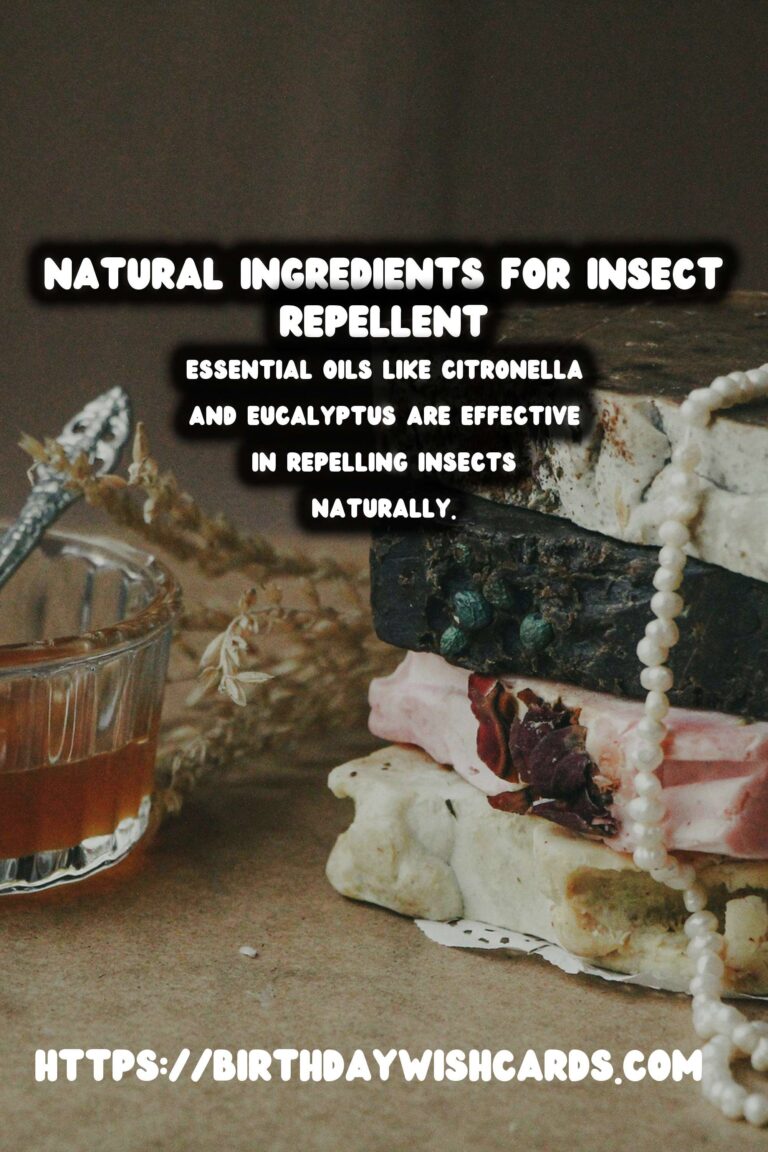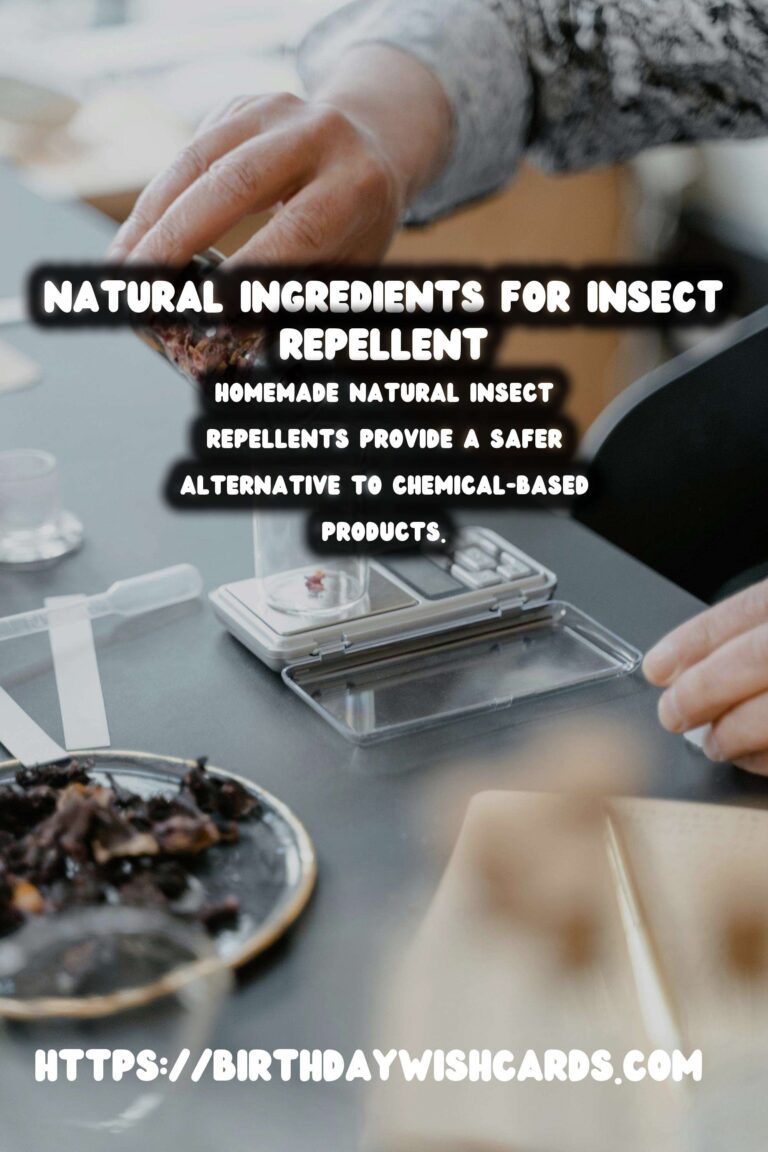
As the warm months approach, many of us look forward to spending more time outdoors. However, with the beauty of nature comes the inevitable nuisance of insects. While store-bought insect repellents can be effective, they often contain harsh chemicals that may not be ideal for our health or the environment. Fortunately, there are natural alternatives that can be made at home, offering both safety and effectiveness.
Why Choose Natural Insect Repellents?
The primary concern with conventional insect repellents is their chemical composition. Many of these products contain DEET, a chemical that has been associated with skin irritation and other health concerns when used in large amounts. By opting for a natural insect repellent, you can avoid potential side effects while still keeping bugs at bay.
Essential Oils: Nature’s Shield Against Insects
Essential oils are a cornerstone of homemade insect repellents. Oils like citronella, eucalyptus, and lavender not only smell pleasant but also have properties that repel insects. For instance, citronella oil is known for its strong scent that masks human odors, effectively keeping mosquitoes and other pests at a distance.
DIY Insect Repellent Recipes
Creating your own insect repellent at home is simple. Here are a few recipes to get you started:
Citrus and Eucalyptus Spray
Ingredients:
- 1 cup water
- 10 drops of eucalyptus essential oil
- 10 drops of lemon essential oil
- 1 tablespoon of witch hazel
Instructions: Mix the ingredients in a spray bottle, shake well, and apply to exposed skin.
Herbal Vinegar Repellent
Ingredients:
- 1 cup apple cider vinegar
- 1 tablespoon dried rosemary
- 1 tablespoon dried mint
- 1 tablespoon dried lavender
Instructions: Combine all ingredients in a jar, seal it, and let it sit for two weeks. Strain the herbs and transfer the liquid to a spray bottle.
Benefits of Using Homemade Insect Repellents
Using homemade insect repellents has several advantages. They are cost-effective, customizable, and free from synthetic chemicals. Additionally, many natural ingredients have skin-soothing properties, offering a two-in-one solution for skincare and insect protection.
Precautions and Tips
While natural insect repellents are generally safe, it’s important to perform a patch test before applying them to your skin, especially if you have sensitive skin. Also, remember to reapply the repellent every few hours for maximum effectiveness.
Conclusion
Homemade natural insect repellents are an excellent alternative to chemical-laden options. By using simple ingredients from your kitchen or local store, you can enjoy your time outdoors without the worry of insect bites. With these recipes and tips, you are well-equipped to keep those pesky insects at bay naturally and safely.
Homemade natural insect repellents provide a safer alternative to chemical-based products. Essential oils like citronella and eucalyptus are effective in repelling insects naturally. DIY insect repellent recipes are simple to make and customizable. Natural repellents are cost-effective and free from synthetic chemicals. It’s important to perform a patch test before full application of homemade repellents. 









#NaturalRepellent #DIYInsectRepellent #EcoFriendlyLiving



